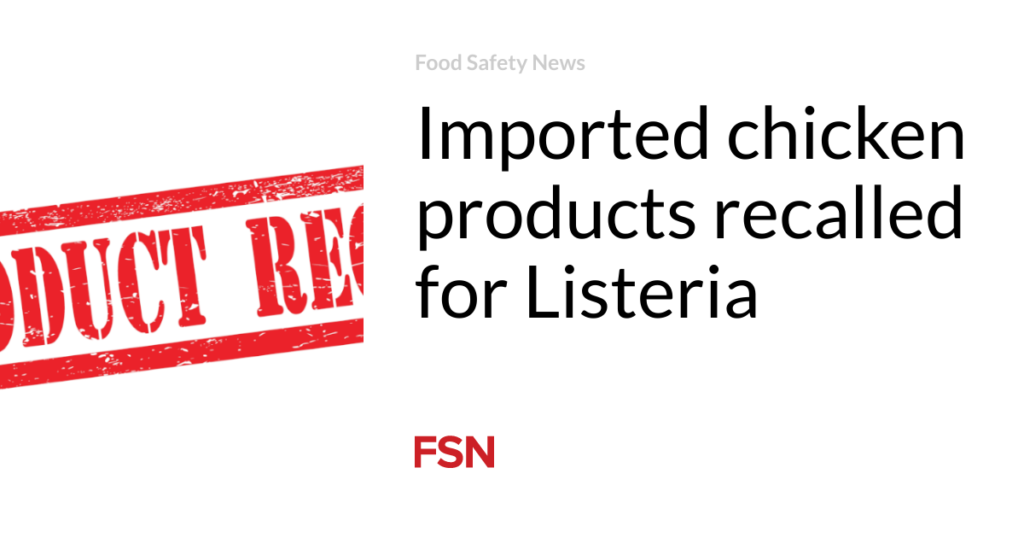According to the U.S. Department of Agriculture’s Food Safety and Inspection Service (FSIS), importer Al-Safa US LLC, located in Mississauga, Ontario, Canada, has recalled approximately 2,010 pounds of imported frozen, pre-cooked chicken products that may be contaminated with Listeria monocytogenes.
The frozen, cooked chicken products were manufactured in Canada on June 5, 2024, and imported into the U.S. on June 13, 2024 and June 21, 2024. The recalled products are:
The 12.1 oz cardboard box package contains “Al Safa Halal Charcoal Grilled Chicken Seekh Kebab Grilled, Minced, Chicken Patty Kebab.” The sticker on the outside of the package has “NOV 30 25” and “0605404” printed on it. The 14.11 oz cardboard box package contains “Al Safa Halal Fully Cooked Chicken Chapli Kebab Seasoned Chicken Patty.” The sticker on the outside of the package has “NOV 30 25” and “0605416” printed on it.
The recalled products bear the establishment number “866” within the Canadian inspection mark and were shipped to retailers nationwide.
The issue was discovered after FSIS conducted routine product testing, which determined the product may be contaminated with Listeria monocytogenes.
There are no known side effects from taking these products. If you have concerns about a medical condition, consult a healthcare professional.
FSIS is concerned that some products may be stored in consumers’ freezers. Consumers who have purchased these products are strongly advised not to consume them; they should be discarded or returned to the place of purchase.
Consuming food contaminated with Listeria monocytogenes can cause listeriosis, a serious infection that mainly affects older people, people with weakened immune systems, pregnant women and their newborns. In rare cases, people outside these risk groups can become infected.
Listeriosis can cause fever, muscle aches, headache, stiff neck, confusion, loss of balance, and convulsions, and may be preceded by diarrhea or other gastrointestinal symptoms. Invasive infection spreads beyond the gastrointestinal tract. In pregnant women, the disease can cause miscarriage, stillbirth, premature birth, or life-threatening infection in the newborn. Additionally, in older people and those with weakened immune systems, it can cause serious and sometimes fatal infections. Listeriosis is treated with antibiotics. People who are in high-risk categories and experience flu-like symptoms within two months of eating contaminated food should seek medical care and tell their health care provider that they ate contaminated food.
(Click here to sign up for a free subscription to Food Safety News.)


